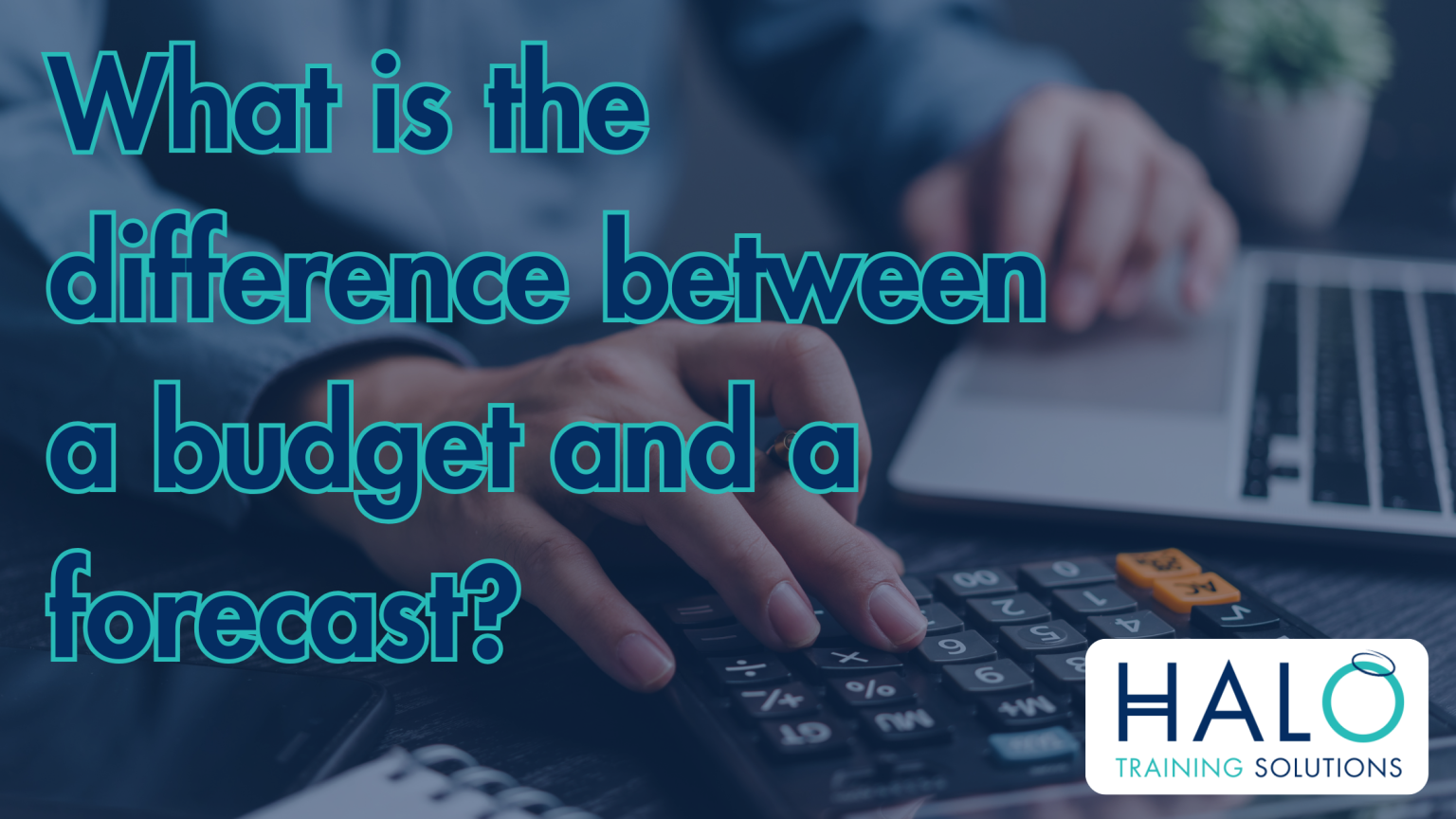What is the Difference Between a Budget and a Forecast?
For business owners and leaders, financial planning is critical to success.
Two of the most important tools in this planning are budgets and forecasts. These terms are often used interchangeably, but they serve different purposes.
So, what is the difference between a budget and a forecast?
Understanding the Basics
Before we look at the details, it’s essential to understand what a budget and a forecast are.
A budget is a financial plan that outlines the expected revenues, expenses, and financial goals for a specific period, usually a year. It acts as a roadmap, helping businesses stay on track financially and make more informed decisions.
A forecast, is a projection of future financial performance based on current data and trends. Unlike a budget, a forecast is updated regularly to reflect changes in the business environment, providing a real-time view of what is likely to happen financially.
But what is the difference between budget and forecast beyond their definitions?
The key distinctions are in their purpose, time frame, and flexibility.
Purpose
Goals Vs Reality
One of the primary differences between a budget and a forecast is their purpose.
A budget is all about setting financial goals.
It’s a plan that outlines where you want your business to be financially within a specific period. For instance, you might set a budget for a 10% increase in revenue or maybe aim to reduce costs by 5%. Or both! Budgets provide a target for your business to work toward.
A forecast, however, focuses on reality.
It reflects what is happening in your business right now and what is likely to happen based on current conditions. While a budget sets goals, a forecast shows whether you’re on track to meet those goals or if adjustments are needed. So, a forecast is your financial reality check.
Time Period
Long term vs Short Term
Another critical difference between budget and forecast is the time period that they cover.
Budgets are typically created annually and remain fixed for the year. Once a budget is set, it doesn’t change, even if the business environment does. The idea is to set long-term goals and create a plan to achieve them.
Forecasts are more dynamic and short-term. They are updated regularly monthly or quarterly to reflect changes in the business, market conditions, or external factors like the economy. Because they are more flexible, forecasts allow you to adjust your expectations and strategies as new information becomes available.
Flexibility
Fixed vs Fluid
Budgets are typically fixed.
Once you’ve created a budget for the year, you generally stick to it, even if circumstances change. This rigidity can be both a strength and a weakness. It’s a strength because it forces discipline and provides a clear financial target. But it’s also a weakness because it doesn’t account for unexpected changes in the business environment.
Forecasts are fluid.
They can – and should – be updated as new information becomes available. If a major client unexpectedly increases their orders, your forecast would adjust to reflect that. If costs suddenly spike due to inflation, your forecast would change accordingly. This flexibility allows business owners to respond more effectively to real-time conditions.
Both Budgets and Forecasts are useful in financial management.
We have gone through the differences between a budget and a forecast. It is also important to understand how they can work together.
Both are crucial for effective financial management.
The budget that you create provides the long term plan and is aligned with your financial targets. It should be referred back to on a monthly or weekly basis to ensure that the business is staying on track with the financial goals.
However, relying on your budget can lead to issues if the market changes or other scenarios.
This is where you can use the forecast inline. By regularly updating your forecast you can compare the forecast and budget and adjust your business strategy in real time and stay ahead.
If the forecast shows that you aren’t on track to meet the budget then you can take action!
Whether this is cutting costs, increasing sales and marketing resources or adjusting your pricing strategy.
Here at Halo Training Solutions Limited, we can support you with the knowledge you need to implement a budget and a forecast into your business so you can get ahead and achieve your goals!
Get in contact today to learn more about how we support businesses with different types of training to suit their needs.
Contact us today to discuss how we can partner with you to achieve your goals.

